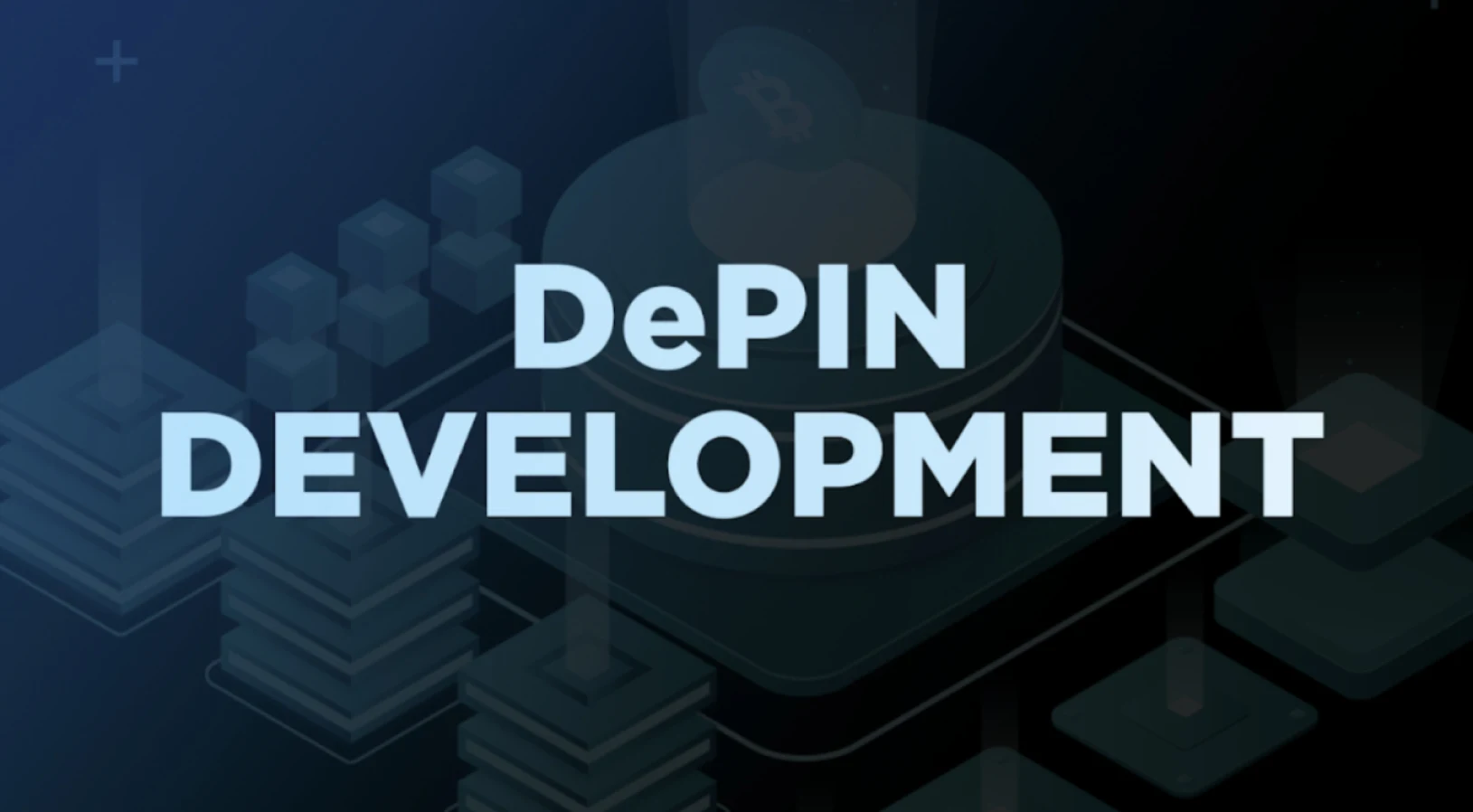Decentralized Physical Infrastructure Networks (DePIN) are rapidly transforming how physical assets are managed and utilized. By combining blockchain technology with real-world infrastructure, DePIN projects incentivize participation, decentralize operations, and eliminate the reliance on centralized intermediaries. With applications spanning industries such as telecommunications, mobility, mapping, energy, and storage, DePIN is revolutionizing physical infrastructure management.
As the DePIN space expands, companies leading the development of these networks are driving innovation. This comprehensive guide highlights the top development companies in 2025, drawing insights from their contributions, technologies, and real-world impact.
What Is DePIN?
DePIN refers to blockchain-driven networks that decentralize physical infrastructure by enabling participants to share resources like bandwidth, storage, or computing power. These networks incentivize participation through token rewards, creating decentralized ecosystems that are cost-efficient, scalable, and secure.
Key Benefits of DePIN
| Benefit | Description |
|---|---|
| Decentralization | Empowers users by removing centralized control. |
| Cost Efficiency | Leverages shared resources, reducing infrastructure costs. |
| Incentivization | Rewards participants for contributing to the network. |
| Transparency | Blockchain ensures secure and immutable transaction records. |
| Global Accessibility | Provides anyone with access to participate and earn rewards. |
Explore more about blockchain in our What Is Blockchain? post.

Top DePIN Development Companies in 2025
1. Helium Foundation
Helium is renowned for its decentralized wireless infrastructure, enabling IoT and 5G connectivity. Users deploy hotspots and earn HNT tokens for their contributions, building a global network for long-range, low-power communication.
| Feature | Highlight |
|---|---|
| Focus Area | Decentralized IoT and 5G networks. |
| Key Contributions | Incentivized hotspot deployment, community-driven global expansion. |
| Why It Matters | Provides affordable connectivity for underserved regions. |
2. Render Network
Render Network revolutionizes GPU rendering by connecting creators with unused computing power. By decentralizing rendering tasks, it enables cost-effective and scalable solutions for industries like gaming, metaverse, and film production.
| Feature | Highlight |
|---|---|
| Focus Area | GPU rendering for high-performance industries. |
| Key Contributions | Transparent blockchain-enabled task execution, scalability, and cost savings. |
| Why It Matters | Enables creators to access affordable and efficient rendering services. |
3. Filecoin
Filecoin is a leading decentralized storage solution. It connects storage providers and users, incentivizing unused storage through blockchain. Filecoin has been pivotal in industries needing secure, scalable, and cost-efficient storage.
| Feature | Highlight |
|---|---|
| Focus Area | Decentralized storage for enterprises. |
| Key Contributions | Blockchain-based encryption, integration with DeFi, and cost efficiency. |
| Why It Matters | Addresses storage scalability for data-intensive industries. |
4. HiveMapper
HiveMapper decentralizes mapping by allowing contributors to share dashcam footage, creating updated, real-time maps. HiveMapper rewards participants with tokens, making decentralized mapping an affordable and scalable alternative.
| Feature | Highlight |
|---|---|
| Focus Area | Decentralized mapping for logistics and urban planning. |
| Key Contributions | Incentivized real-time map creation, decentralized alternatives to legacy systems. |
| Why It Matters | Provides affordable and up-to-date mapping solutions for businesses. |
5. DIMO
DIMO specializes in decentralized mobility solutions by enabling secure sharing and management of automotive data. Its blockchain-based ecosystem benefits manufacturers, fleet managers, and drivers.
| Feature | Highlight |
|---|---|
| Focus Area | Decentralized mobility data sharing. |
| Key Contributions | Blockchain-secured automotive data sharing, eco-friendly initiatives. |
| Why It Matters | Enhances fleet management and privacy-focused data utilization. |
Emerging Trends in DePIN
- Integration with AI and IoT: DePIN networks are increasingly incorporating predictive analytics powered by AI and real-time IoT data for better operational efficiency.
- Cross-Sector Collaboration: DePIN is expanding into healthcare, logistics, and education, enabling innovative use cases.
- Enhanced Incentive Models: Networks are implementing more attractive reward structures to boost user participation.
- Regulatory Compliance: Blockchain hubs like Saudi Arabia and the UAE are advancing DePIN adoption with progressive regulations.
Tools for DePIN Development
Blockchain Solutions utilizes state-of-the-art tools to develop robust DePIN networks tailored to your industry. Our expertise includes:
- Smart Contract Development: Automates infrastructure operations and ensures transparent execution.
- Custom Blockchain Development: Creates scalable DePIN solutions for telecommunications, logistics, and more.
- Compliance Modules: Adheres to AML/KYC and jurisdiction-specific regulations to ensure legal integrity.
Explore our Custom Blockchain Development Services to build tailored DePIN projects.
Why Blockchain Solutions?
At Blockchain Solutions, we provide end-to-end DePIN development services, empowering businesses to unlock the full potential of decentralized networks. Our services include:
- Custom Solutions: Tailored platforms for various industries, from mapping to storage.
- Regulatory Compliance: Integrated tools to meet global standards.
- Scalable Infrastructure: Future-proof networks for long-term success.
Learn more in our Smart Contract Development Services.
